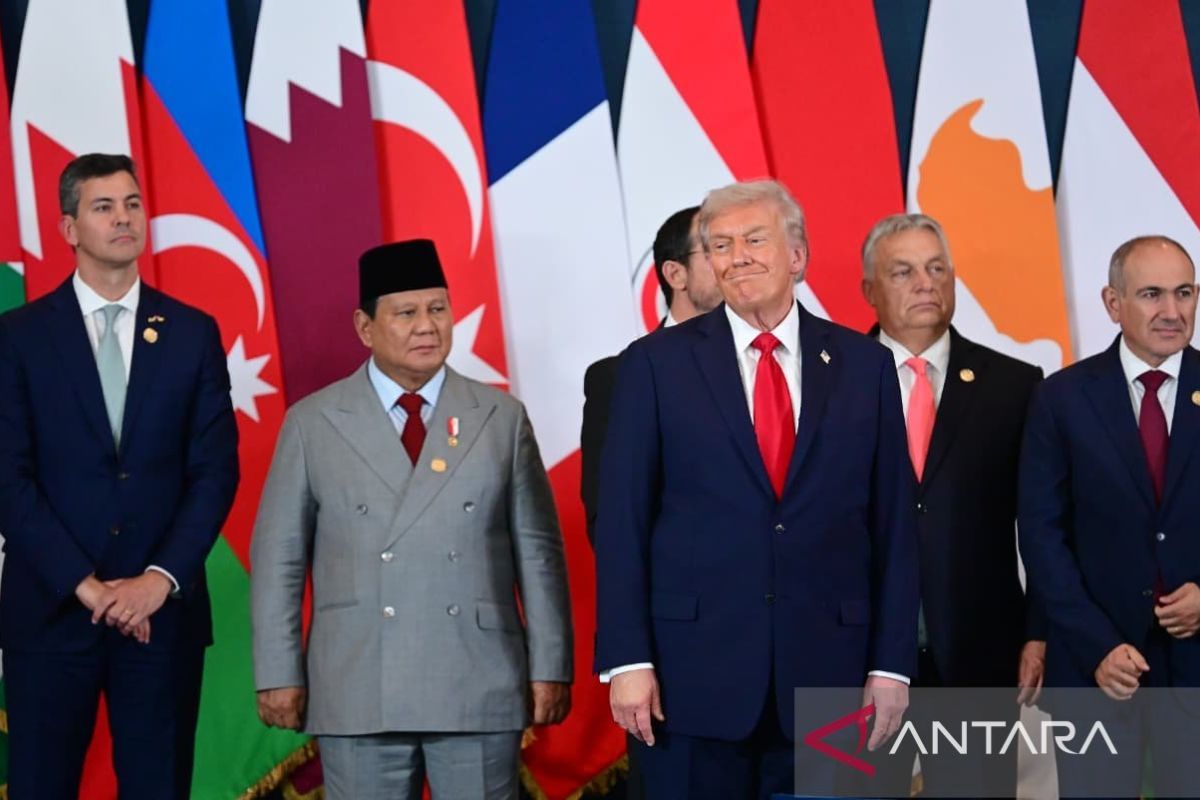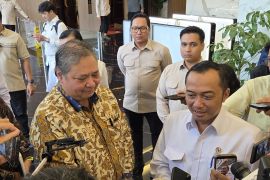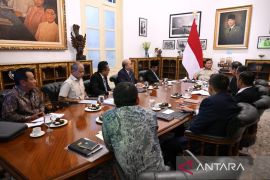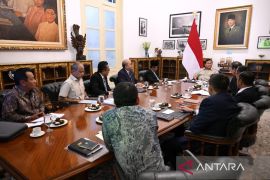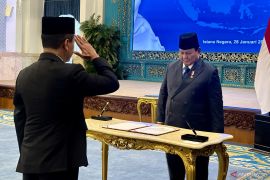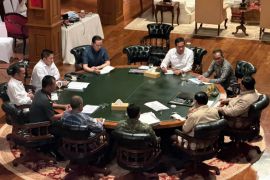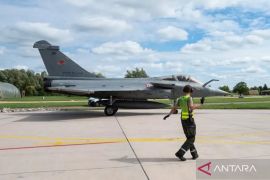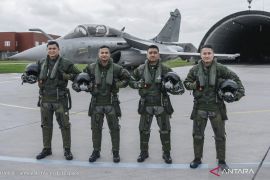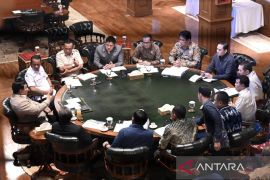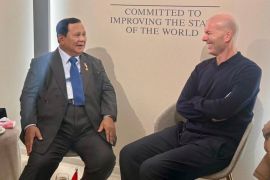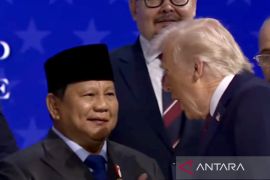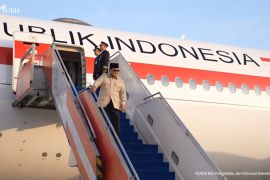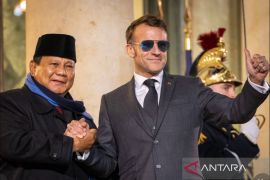In his first 12 months, Prabowo conducted at least 15 state visits to 24 countries, including Malaysia, the United Arab Emirates, the United States, Brazil, and China.
He met with world leaders such as US Presidents Joe Biden and Donald Trump, Chinese President Xi Jinping, Brazilian President Luiz Inácio Lula da Silva, and Malaysian Prime Minister Anwar Ibrahim.
His visit to New York last September for the UN General Assembly drew international attention, ending a decade-long absence of an Indonesian head of state at the global summit.
There, Prabowo placed Palestinian independence at the forefront of Indonesia's diplomatic agenda, reaffirming support for a two-state solution and stressing that both Palestinian sovereignty and Israeli security must be guaranteed for lasting peace.
He also renewed Indonesia's commitment to the UN and multilateralism — an encouraging signal amid the global retreat from international cooperation by major powers.
"We are keen to be friends with all and become enemies to none, especially between neighbors," Foreign Minister Sugiono said days after Prabowo's UN address.
His statement reflected the president's goal to build friendly relations with all nations and ensure diplomacy benefits every side.
Prabowo's personal involvement in diplomacy, including direct engagement with global leaders, has strengthened perceptions of Indonesia as an essential player in resolving international crises.
He took part in initiatives addressing Israeli aggression in Gaza, such as a multilateral Middle East meeting hosted by President Trump on September 23 and the Gaza Peace Summit in Sharm El-Sheikh, Egypt, on October 13.
"President Prabowo has shown he can build psychological closeness with world leaders even when they disagree," said Teuku Rezasyah, an international relations expert from Padjadjaran University.
Broad achievements
In his first year, Prabowo's diplomacy yielded achievements across political, economic, and cultural sectors.
Economically, Indonesia finalized three Comprehensive Economic Partnership Agreements (CEPAs) with Peru (I-P CEPA), the European Union (I-EU CEPA), and Canada (I-CA CEPA) between August and September.
Full implementation is expected to boost Indonesia–EU trade by 20 percent annually, raise exports to Canada to US$11.8 billion by 2030, and expand trade with Peru to US$5 billion.
Prabowo's overseas visits also generated major investment pledges. During his November 2024 tour, he secured commitments worth US$18.5 billion, followed by another US$23.8 billion at the 2025 Osaka Expo.
In defense diplomacy, Indonesia signed five agreements with Brazil, France, India, Cambodia, and the United Arab Emirates.
Culturally, Indonesia will soon receive the return of over 28,000 early human fossils from the Netherlands' Dubois collection, following Prabowo's visit to The Hague on September 26.
Expert evaluations
While Prabowo's first year saw major diplomatic breakthroughs, Indonesia still needs a clearer strategic direction for its foreign policy, said Moch Faisal Karim, an international relations scholar from the Indonesia International Islamic University (UIII).
He noted that the administration must now define core priorities to guide its diplomacy.
"President Prabowo must set clear strategies so our diplomats know where we stand. Should we focus on geo-economics or build our role as a middle power? That must be defined," Karim said.
He compared Prabowo's approach to his predecessors: Susilo Bambang Yudhoyono, who focused on Indonesia's middle-power diplomacy, and Joko Widodo, who emphasized economic diplomacy with a domestic focus.
Rezasyah added that Indonesia should continue advocating for UN reform, particularly in the Security Council, to make the institution more effective and representative.
He also urged Indonesia to take leadership roles in the Organization of Islamic Cooperation (OIC) and the Non-Aligned Movement (NAM), while deepening engagement on global environmental issues and Indo-Pacific stability.
Looking ahead
With four years remaining, Prabowo has an opportunity to strengthen Indonesia's position globally and implement meaningful reforms at home.
He could launch bold initiatives echoing former President Joko Widodo's "Global Maritime Fulcrum" strategy, aligning Indonesia's diplomacy with Indo-Pacific priorities.
Prabowo has made it clear he intends to play an active role in shaping the future direction of Indonesia's foreign policy — one rooted in friendship, balance, and global responsibility.
Related news: President Prabowo orders faster refinery projects, oil well licensing
Related news: Prabowo defends free meal program, cites 99.99 percent success rate
Translator: Nabil Ihsan
Editor: Anton Santoso
Copyright © ANTARA 2025
